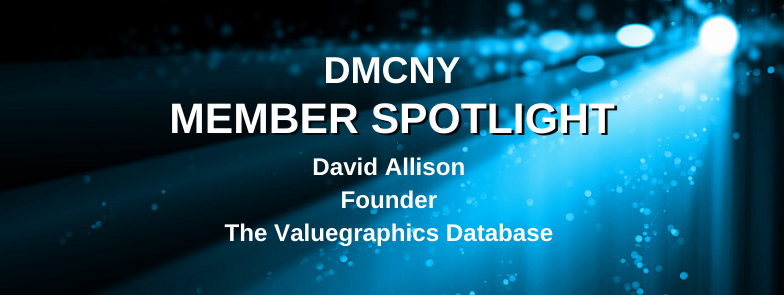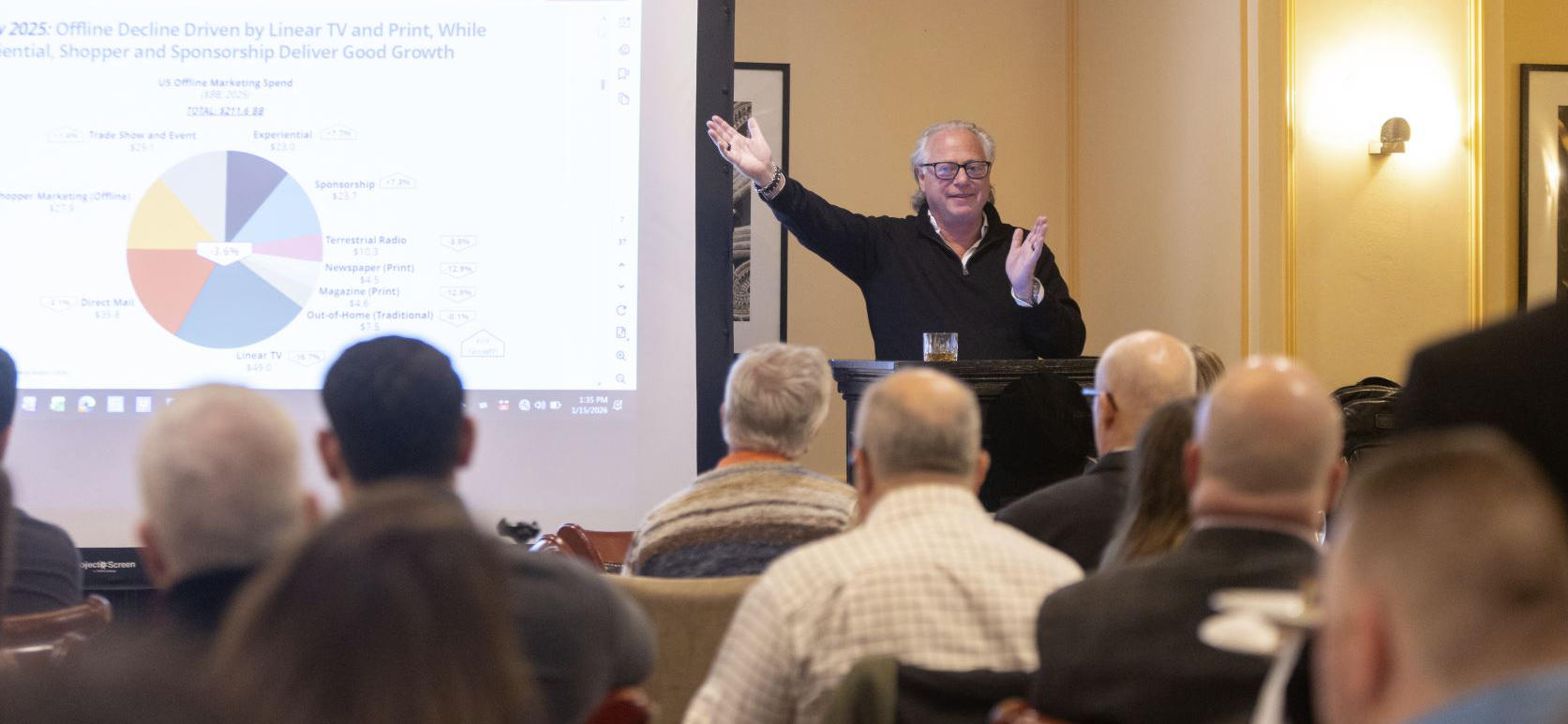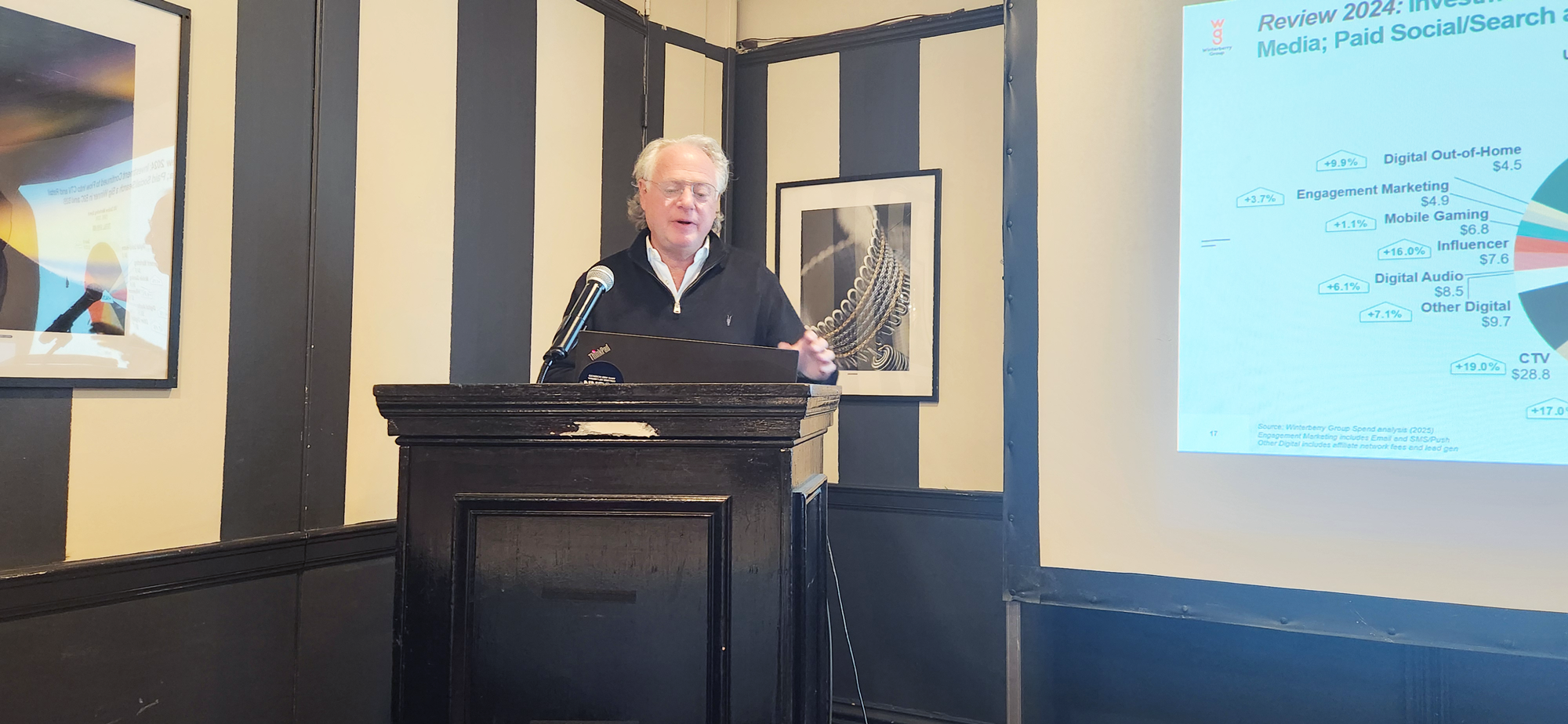

The ever-ebullient David Allison is a master juggler—figuratively, that is. Along with his broad role as founder (and chief marketer) of The Valuegraphics Database, Allison is a globally sought-after speaker on all things customer data. Over the course of his marketing career, he’s worked as a brand marketer and an agency lead, and even dabbled in sales as an account manager.
Allison is a fervent evangelist when it comes to the power of using the right customer data in the right way. Here, he shares highlights of his marketing journey, his take on the industry, and his predictions of what’s yet to come. –Ginger Conlon
Why marketing?
OMG. Really? OK. It’s a slightly embarrassing story, but as long as you promise not to tell anyone, I’ll share it… The shallowest of reasons possibly imaginable pushed me into marketing.
I was a teenage fashion model. Yikes. It makes me cringe to say that out loud! But there’s the thing: I enjoyed the experience so much that it made my teenage brain start to wonder how I could make a career out of this long after I was “too old” to be a model anymore. I thought to myself, “Well, I could be the one who creates the campaigns and hires the models.” Soon after I went to university to study journalism and marketing so I could do just that.
What has been a key turning point in your career so far?
Choosing just one is hard. I was very proud to have built a successful marketing firm and employ a lot of people: we created a lot of jobs, trained a lot of people who have gone on to do very cool things, paid for a lot of mortgages and braces-on-kids-teeth, and all sorts of stuff. That was stressful but very gratifying.
The key turning point, however, has got to be building The Valuegraphics Database, the first-ever global database of what everyone on the planet cares about; that is, what we value. We can use this data to disprove demographic stereotypes and help everyone look at their target audiences based on the values they share, the things that make them human. It’s super-powerful, and right now, when there is so much divisiveness in the world, it’s an important tool to help us all realize how much we have in common with each other.
What do you think are the most important qualities for a marketer today?
A big spongy brain. Seriously. Wake up every single day and look forward to being shown better ways to do things. Embrace being wrong as often as possible.
What advice would you have given your younger self when entering marketing?
Chill. No one is going to die because of anything you do. It’s not brain science or rocket surgery! LOL.
What’s the biggest challenge facing data-driven marketing right now?
Too much data. Seriously. We’ve been gorging ourselves on data. I’m starting to sense we are all getting a bit full. We are pushing our chairs back from the table and saying, ”Damn, my belly hurts. What am I supposed to do with all this stuff?”
We need useful, actionable, predictive data that can help us engage and influence target audiences.
I don’t want to be mean, but the best example of useless data—it makes my toes curl whenever I see one of these—are brand emotion studies. Please. You can love a brand one day and hate it the next day. What is a brand supposed to do with this information?
Sitting around the table saying to each other, “People love us!” doesn’t help—especially when half those people could change their mind about you at the drop of a hat.
Give one prediction on the future of marketing.
We will find a way, eventually, to be more human. We will stop looking at demographic cohorts as a useful targeting tool. We will start realizing that all humans care about similar things, regardless of age, income, gender, marital status, or any other external characteristic.
If we don’t stop using these antique, discriminatory tools from the olden days to look at the world, we are doomed to being fractious and splintered. Demographics drive us apart, but our shared human values unite us.
What does the future hold for you?
The immediate future? My third cup of coffee at the kitchen table, wearing my flannel pajamas.
Longer-term future? A new book based on the global dataset. The last book, We Are All the Same Age Now, was written a couple of years ago when we only had accurate data for the USA and Canada. We are now global, with accurate data for 180 out of 185 countries.
What do you enjoy the most about being a member of DMCNY?
It’s a new thing for me, but I am so looking forward to meeting other data-driven marketers who are looking to find better ways to look at the world—virtually, for now. Once we can get back in a room together, I want to shake hands with all of the marketers in New York City.








